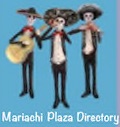Welcome to Facts Vibes! Dive into the captivating world of mariachi music with us. From its rich cultural heritage to its vibrant performances, we’re here to uncover fascinating facts about this iconic musical tradition. Let’s explore the history, instruments, and unique melodies that define mariachi music.
The Rich History and Cultural Significance of Mariachi Music
Mariachi music has played a rich and cultural role in Mexican society for centuries. Originating in the western regions of Mexico, Mariachi music is deeply intertwined with the country’s history, traditions, and identity. The iconic style of music incorporates a blend of influences from Spanish, indigenous, and African cultures, reflecting the diverse heritage of Mexico. Its vibrant melodies and lively rhythms have become a symbol of celebration, accompanying various social and cultural events such as weddings, festivals, and national holidays.
One of the most significant aspects of Mariachi music is its ability to convey powerful emotions and storytelling through its lyrics and melodies. The songs often depict themes of love, honor, betrayal, and the struggles of everyday life, resonating with audiences on a personal and communal level. This emotional connection has helped Mariachi music endure and thrive over the years, preserving its importance in Mexican culture and beyond.
Furthermore, the historical evolution of Mariachi music reflects the socio-political changes and movements in Mexico. From its humble origins as a rural folk music style, Mariachi has evolved into a recognized and respected art form, garnering international acclaim and recognition. Its evolution has been shaped by the contributions of talented musicians, composers, and performers who have expanded and redefined the genre while staying true to its roots.
In conclusion, the rich history and cultural significance of Mariachi music transcends geographical boundaries and continues to captivate audiences worldwide. Its enduring appeal lies in its ability to connect people through shared experiences, emotions, and stories, making it a cherished and integral part of Mexican heritage and global musical diversity.
Most popular facts
The word “mariachi” is believed to have originated from the French word for marriage, “mariage,” and refers to the musicians who performed at weddings in Mexico.
The word “mariachi” is believed to have originated from the French word for marriage, “mariage,” and refers to the musicians who performed at weddings in Mexico.
Mariachi music is a genre that originated in western Mexico, particularly in the state of Jalisco.
Mariachi music is a genre that originated in western Mexico, particularly in the state of Jalisco.
The traditional mariachi ensemble includes violins, trumpets, guitar, vihuela, and guitarrón, a large acoustic bass.
The traditional mariachi ensemble includes violins, trumpets, guitar, vihuela, and guitarrón, a large acoustic bass.
The charro suit, a traditional outfit worn by mariachi musicians, includes tight-fitting pants, a short jacket, and a wide-brimmed sombrero.
The charro suit, worn by mariachi musicians, includes tight-fitting pants, a short jacket, and a wide-brimmed sombrero.
Mariachi music was inscribed on the Representative List of the Intangible Cultural Heritage of Humanity by UNESCO in
Mariachi music was inscribed on the Representative List of the Intangible Cultural Heritage of Humanity by UNESCO.
Sure, Information and facts play a crucial role in decision-making and knowledge sharing.
The most famous mariachi song, “Cielito Lindo,” is recognized worldwide and is often associated with Mexican culture.
The most famous mariachi song, “Cielito Lindo,” is recognized worldwide and is often associated with Mexican culture.
Mariachi Vargas de Tecalitlán, founded in 1898, is one of the most renowned mariachi groups in the world.
Sure! Mariachi Vargas de Tecalitlán, founded in 1898, is one of the most renowned mariachi groups in the world.
The genre has evolved over time to incorporate elements from various regions of Mexico, creating different styles within the mariachi tradition.
The genre of mariachi music has evolved over time to incorporate elements from various regions of Mexico, creating different styles within the mariachi tradition.
Mariachi music is often performed at celebrations such as weddings, quinceañeras, and other festive occasions.
Mariachi music is often performed at celebrations such as weddings, quinceañeras, and other festive occasions.
The style of mariachi music known as “ranchera” is characterized by its themes of rural life, love, and patriotism.
The ranchera style of mariachi music is characterized by its themes of rural life, love, and patriotism.
Mariachi Plaza in Los Angeles, California, is a hub for mariachi musicians and enthusiasts, serving as a gathering place for performances and events.
Mariachi Plaza in Los Angeles, California, is a hub for mariachi musicians and enthusiasts, serving as a gathering place for performances and events.
Female mariachi musicians, known as “mariachis mujeres,” have gained recognition and are increasingly represented in the traditionally male-dominated genre.
Female mariachi musicians have gained recognition and are increasingly represented in the traditionally male-dominated genre.
Many mariachi songs feature intricate vocal harmonies, with the musicians often singing in a call-and-response fashion.
Many mariachi songs feature intricate vocal harmonies, with the musicians often singing in a call-and-response fashion.
Mariachi music has influenced various musical genres, including pop, rock, and jazz, through collaborations and fusion projects.
Mariachi music has influenced various musical genres, including pop, rock, and jazz, through collaborations and fusion projects.
In 2012, the Grammy Awards introduced a category for Best Regional Mexican Music Album, which includes mariachi recordings.
In 2012, the Grammy Awards introduced a category for Best Regional Mexican Music Album, which includes mariachi recordings.
In conclusion, mariachi music is a cherished and vibrant cultural tradition that holds a deep significance in Mexican heritage. Its lively rhythms and heartfelt melodies have captivated audiences worldwide, serving as an enduring symbol of Mexican musical and cultural identity. As we continue to celebrate and preserve the rich history of mariachi, we honor the profound legacy it represents for generations to come.
